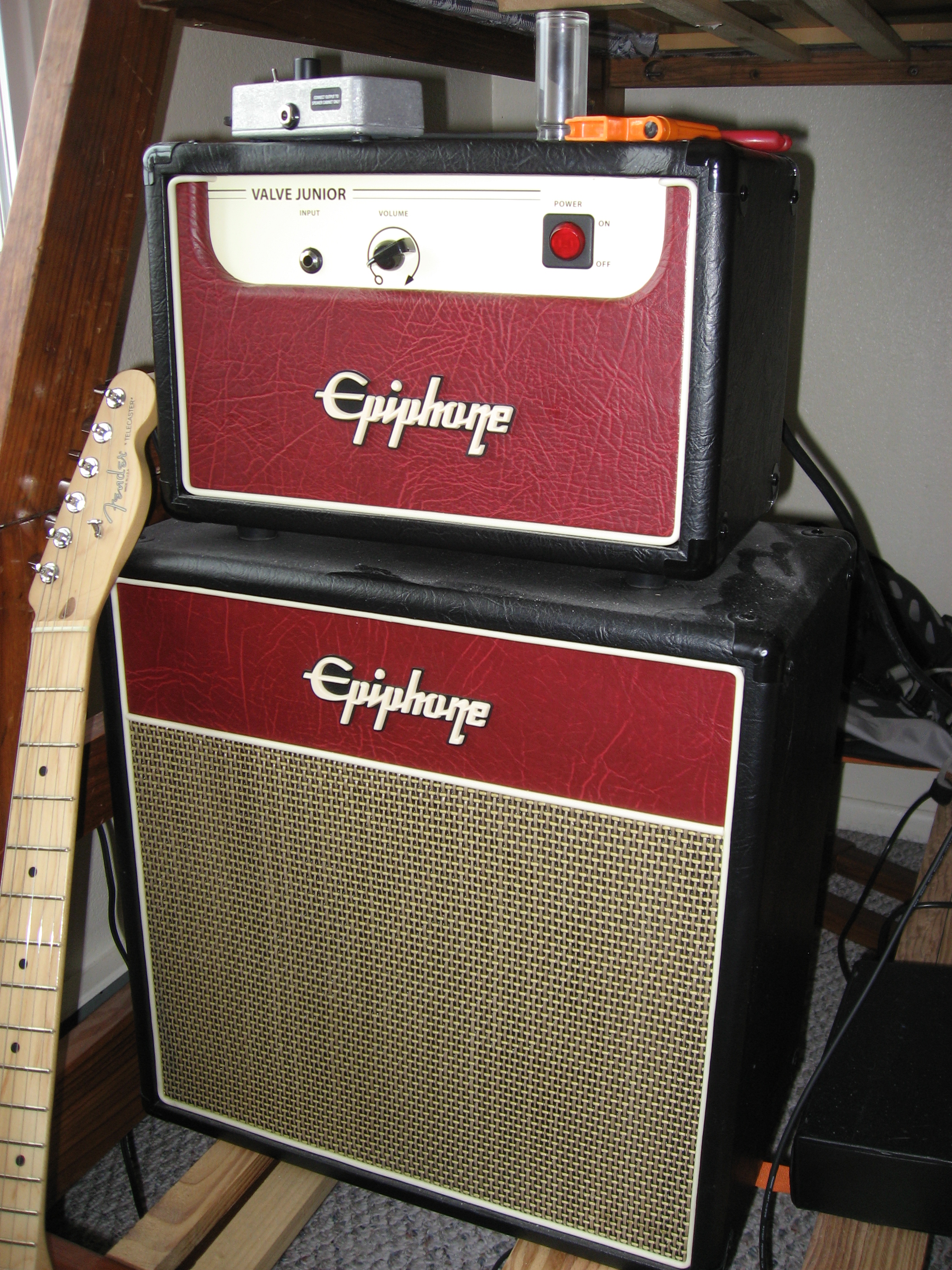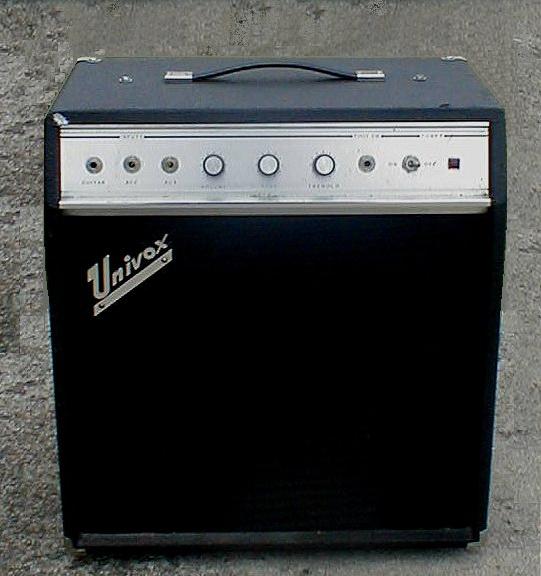|
Matsumoku
Matsumoku Industrial was a Japanese manufacturing company based in Matsumoto, Nagano, between 1951 and 1987. Established in 1951 as a woodworking and cabinetry firm, Matsumoku is remembered as a manufacturer of guitars and bass guitars, including some Epiphone and Aria guitars. (There is occasional confusion between "Matsumoku" and "Matsumoto". Matsumoto is a town in Japan's Nagano Prefecture, where FujiGen Gakki, Gotoh, and other musical instrument companies have manufacturing plants. Matsumoto Musical Instrument Manufacturers Association is also the name of a musical instrument manufacturing cooperative, headed by Gotoh). History In 1951, Matsumoku was founded as Matsumoto Mokkō ("Matsumoto Woodworking Company") by Mr. Tsukada in Matsumoto, Nagano, Japan. It was a family-owned woodworking business that specialized in building tansu cabinets n English: "[Sometime between 1946-1951,''When he ''[Harayama">ometime_between_1946-1951,.html" ;"title="n English: "[Sometime bet ... [...More Info...] [...Related Items...] OR: [Wikipedia] [Google] [Baidu] |
Epiphone
Epiphone is an American musical instrument brand that traces its roots to a musical instrument manufacturing business founded in 1873 by Anastasios Stathopoulos in Smyrna, Ottoman Empire, and moved to New York City in 1908. After taking over his father's business, Epaminondas Stathopoulos named the company "Epiphone" as a combination of his own nickname "Epi" and the suffix " -phone" (from Greek ''phon-'', "voice") in 1928, the same year it began making guitars. In 1957 Epiphone, Inc. was purchased by Gibson, its main rival in the archtop guitar market at the time. Gibson relocated Epiphone's manufacturing operation from its original Queens, New York, factory to Gibson's Kalamazoo, Michigan, factory. Over time, as Gibson moved its own manufacturing operations to other facilities, Epiphone followed suit; Gibson has also subcontracted the construction of Epiphone products to various facilities in the US and internationally. Today, Epiphone is still used as a brand for the Gibson com ... [...More Info...] [...Related Items...] OR: [Wikipedia] [Google] [Baidu] |
Univox
Univox was a musical instrument brand of Unicord Corporation from the early 1960s, when they purchased the Amplifier Corporation of America of Westbury, New York and began to market a line of guitar amplifiers. Univox also distributed guitars by Matsumoku, effects units by Shin-Ei Companion, and synthesizers by Crumar and Korg. In 1985, Unicord Corporation was purchased by Korg, and the Univox brand was phased out. History In the early 1960s the Unicord Corporation, a manufacturer of electric transformers, purchased the Amplifier Corporation of America and began marketing a line of amplifiers under the name of Univox. The company was purchased by Gulf+Western in 1967. Univox-branded fretted instruments (electric and acoustic guitars and electric basses) began being imported from Japanese contract manufacturer Matsumoku in 1975, where they continued until 1982, after which instruments were made in Korea under the "Westbury" brand. The Unicord Corporation was purchased by Korg in ... [...More Info...] [...Related Items...] OR: [Wikipedia] [Google] [Baidu] |
FujiGen
FujiGen Gakki (), also known as FGN, is a Japanese musical instrument manufacturing company based in Matsumoto, Nagano. The company is named after Japan's iconic Mount Fuji. "Gen" means stringed instruments and "Gakki" means musical instrument – the name is literally translated to "Fuji Stringed Musical Instruments". FujiGen does OEM guitar manufacturing for well known guitar brands and they also manufacture their own brand of guitars known as FGN. History FujiGen started production in 1960, making violins and classical guitars. In 1962, FujiGen started production of electric guitars. In the 1970s, FujiGen started making guitars (OEM) for companies such as Hoshino Gakki (Ibanez), CSL (Antoria), Kanda Shokai (Greco guitars) and Yamaha. In 1977–78, FujiGen went into a joint venture with Roland to produce guitar synthesizers. In 1981, FujiGen opted out of acoustic guitar production to mainly concentrate on solid body guitar production. FujiGen obtained a CNC router in mid 1981 ... [...More Info...] [...Related Items...] OR: [Wikipedia] [Google] [Baidu] |
Privately Held Company
A privately held company (or simply a private company) is a company whose shares and related rights or obligations are not offered for public subscription or publicly negotiated in the respective listed markets, but rather the company's stock is offered, owned, traded, exchanged privately, or Over-the-counter (finance), over-the-counter. In the case of a closed corporation, there are a relatively small number of shareholders or company members. Related terms are closely-held corporation, unquoted company, and unlisted company. Though less visible than their public company, publicly traded counterparts, private companies have major importance in the world's economy. In 2008, the 441 list of largest private non-governmental companies by revenue, largest private companies in the United States accounted for ($1.8 trillion) in revenues and employed 6.2 million people, according to ''Forbes''. In 2005, using a substantially smaller pool size (22.7%) for comparison, the 339 companies on ... [...More Info...] [...Related Items...] OR: [Wikipedia] [Google] [Baidu] |
Economy Of Scale
In microeconomics, economies of scale are the cost advantages that enterprises obtain due to their scale of operation, and are typically measured by the amount of output produced per unit of time. A decrease in cost per unit of output enables an increase in scale. At the basis of economies of scale, there may be technical, statistical, organizational or related factors to the degree of market control. This is just a partial description of the concept. Economies of scale apply to a variety of the organizational and business situations and at various levels, such as a production, plant or an entire enterprise. When average costs start falling as output increases, then economies of scale occur. Some economies of scale, such as capital cost of manufacturing facilities and friction loss of transportation and industrial equipment, have a physical or engineering basis. The economic concept dates back to Adam Smith and the idea of obtaining larger production returns through the use o ... [...More Info...] [...Related Items...] OR: [Wikipedia] [Google] [Baidu] |
Albert White (musician)
Albert White (born December 1, 1942) is an American blues guitarist, singer and songwriter. He has released two albums in his own name, although his musical career started in the late 1950s, when he played in Piano Red's then ensemble, later known as Dr. Feelgood & the Interns. White has variously performed with the Tams, Joe Tex, Ray Charles, Beverly Watkins, Clarence Carter, Ben E. King, Hank Ballard and the Midnighters, and Rufus Thomas. Life and career White was born in Atlanta, Georgia, United States. His was a musical family, having Piano Red as an uncle. He began learning to play the guitar from an early age with Piano Red noting that, by the age of nine, White was playing self-made chords on a ukulele. Red then sent White to learn further from his own guitarist, Wesley Jackson. White progressed to the stage that he joined Piano Red's band as guitarist in the late 1950s, becoming bandleader of Dr. Feelgood & the Interns in early 1962. One of the other band members was ... [...More Info...] [...Related Items...] OR: [Wikipedia] [Google] [Baidu] |
Mass Production
Mass production, also known as flow production or continuous production, is the production of substantial amounts of standardized products in a constant flow, including and especially on assembly lines. Together with job production and batch production, it is one of the three main production methods. The term ''mass production'' was popularized by a 1926 article in the ''Encyclopædia Britannica'' supplement that was written based on correspondence with Ford Motor Company. ''The New York Times'' used the term in the title of an article that appeared before publication of the ''Britannica'' article. The concepts of mass production are applied to various kinds of products: from fluids and particulates handled in bulk (food, fuel, chemicals and mined minerals), to parts and assemblies of parts (household appliances and automobiles). Some mass production techniques, such as standardized sizes and production lines, predate the Industrial Revolution by many centuries; however, ... [...More Info...] [...Related Items...] OR: [Wikipedia] [Google] [Baidu] |
Lathe
A lathe () is a machine tool that rotates a workpiece about an axis of rotation to perform various operations such as cutting, sanding, knurling, drilling, deformation, facing, and turning, with tools that are applied to the workpiece to create an object with symmetry about that axis. Lathes are used in woodturning, metalworking, metal spinning, thermal spraying, parts reclamation, and glass-working. Lathes can be used to shape pottery, the best-known design being the Potter's wheel. Most suitably equipped metalworking lathes can also be used to produce most solids of revolution, plane surfaces and screw threads or helices. Ornamental lathes can produce three-dimensional solids of incredible complexity. The workpiece is usually held in place by either one or two ''centers'', at least one of which can typically be moved horizontally to accommodate varying workpiece lengths. Other work-holding methods include clamping the work about the axis of rotation using a chuck or col ... [...More Info...] [...Related Items...] OR: [Wikipedia] [Google] [Baidu] |
Gibson Guitar Corporation
Gibson Brands, Inc. (formerly Gibson Guitar Corporation) is an American manufacturer of guitars, other musical instruments, and professional audio equipment from Kalamazoo, Michigan, and now based in Nashville, Tennessee. The company was formerly known as Gibson Guitar Corporation and renamed Gibson Brands, Inc. on June 11, 2013. Orville Gibson started making instruments in 1894 and founded the company in 1902 as the Gibson Mandolin-Guitar Mfg. Co. Ltd. in Kalamazoo, Michigan, to make mandolin-family instruments. Gibson invented archtop guitars by constructing the same type of carved, arched tops used on violins. By the 1930s, the company was also making flattop acoustic guitars, as well as one of the first commercially available hollow-body electric guitars, used and popularized by Charlie Christian. In 1944, Gibson was bought by Chicago Musical Instruments (CMI), which was acquired in 1969 by Panama-based conglomerate Ecuadorian Company Limited (ECL), that changed its name ... [...More Info...] [...Related Items...] OR: [Wikipedia] [Google] [Baidu] |
Framus
Framus is a German string instrument manufacturing company, that existed from 1946 until going bankrupt in 1975. The Framus brand was revived in 1995 as part of Warwick GmbH & Co Music Equipment KG, in Markneukirchen, Germany. The company's custom shops are located in Markneukirchen, Shanghai, New York City, and Nashville. Timeline * 1946: The foundation of Fränkische Musikinstrumentenerzeugung ("Franconian Musical Instruments Fabrication") by Fred A. Wilfer KG in Erlangen, Germany, to help resettle luthiers displaced from Luby in the Sudetenland). * 1954: A larger factory was built in Bubenreuth, Germany, to house the 300-strong workforce. * 1967: Further expansion saw the building of a second facility in Pretzfeld, Germany. * 1975: The rapidly changing market forced the company into bankruptcy. * 1995: Framus musical instruments resumed production under Warwick GmbH & Co Music Equipment KG. History Early years Framus originated in the town of Luby (now in the Czech ... [...More Info...] [...Related Items...] OR: [Wikipedia] [Google] [Baidu] |





